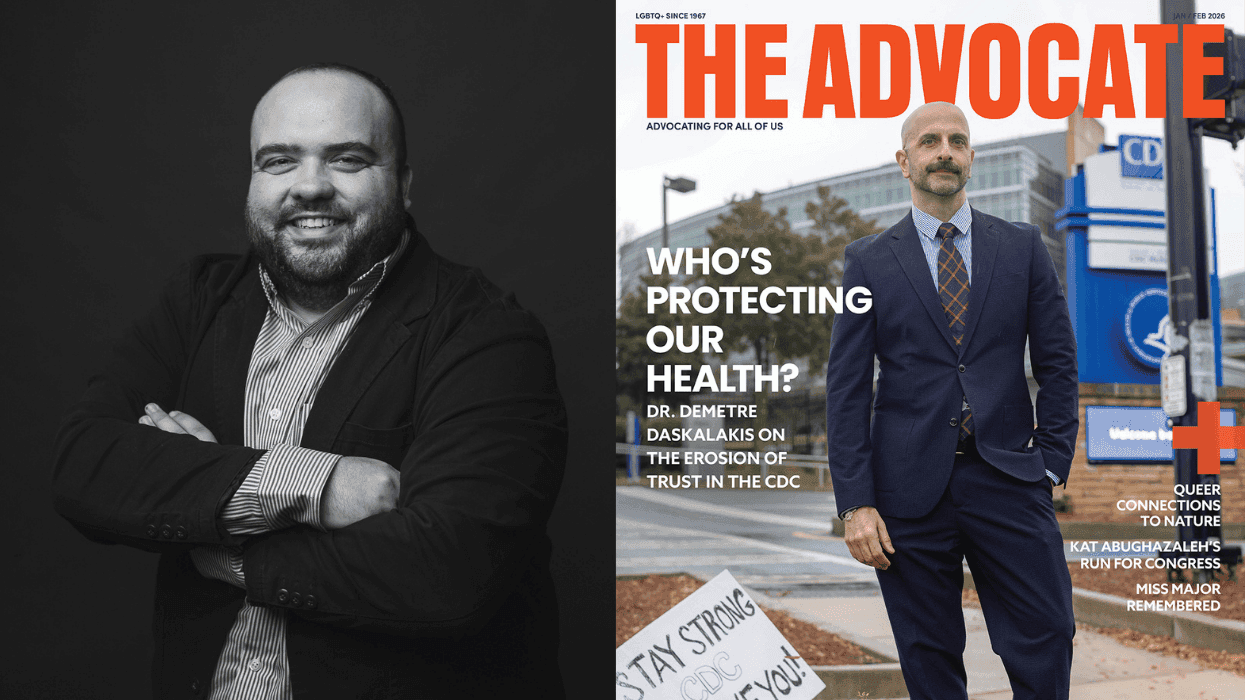Vince Clarke is truly the wizard behind the curtain. Starting in 1980 as a founding member of Depeche Mode, he went on to form three additional bands, two of them highly successful: Yaz (known as Yazoo outside the U.S.) and Erasure. Often in the shadow of his vocalists, he is nevertheless considered by many to be the godfather of electro-pop. Already on the highly anticipated reunion tour of Yaz (with singer Alison Moyet), he takes a break to chat with TheAdvocate.
Why did Yaz disband? We were together 18 months, and in that period of time we never really formed any personal relationship -- never got to know each other. There was a lack of communication, and when there were problems we didn't know how to express those feelings, so it all went awry.
How did that lack of camaraderie affect the songwriting process? Well, most of the songs were either mine or Alison's. It's not like we had a lot of time spent with a guitar and got to write tunes, although it's something we do plan to do.
Who made the final decision to split up Yaz? Hmm...I think it was me who made the call. [Chuckles]
And what brought you back together? I heard that [Alison] was interested in doing something together, and myself -- I didn't see that I had time. Then after the last Erasure tour, my partner Andy [Bell] suggested that we take a couple years off and try some side projects, just for something different, 'cause we'd been working nonstop. It coincided with the idea for a Yaz tour, plus the box set was coming out this year -- it all went together.
I'm glad it did. How has time changed your working relationship with Alison? It's a lot, lot better. She's got three kids, and I've got one. I think that says it all.
Is touring with Alison very different than with Andy? Well, the show's a lot different. I think it's more serious. I guess it reflects when Alison and I were younger -- we took ourselves more serious than myself and Andy do now.
You have a son, Oscar. How has being a parent impacted your career? Well, it limits the time I can do any actual work, y'know? Most of the programming I did for the Yaz tour was done between 5 and 7:30 [a.m.]. Then it would be "Daddy!" So, y'know, that'll be the end of programming.
I think a lot of people would be surprised to learn that you're married with child. Do you find that because of your popularity within gays, you have to frequently come out of the closet as straight? My Mum was surprised, actually. When I phoned her to tell her I'd just gotten married she didn't believe me. It was a good half-hour conversation of "No, Mum, I really did just get married."
As a lyricist, do you ever feel like your songs are compromised -- particularly in terms of romance -- by having either a woman or a gay man sing them? No. No. I don't think it really matters that much. Hopefully it's poetry. It's more the feeling of a song, the emotion of a song. If you write about someone being heartbroken...we can all be heartbroken.
Unfortunately, heartbreak is universal. Yes.
In an early incarnation of the band that would become Depeche Mode, you sang vocals. Why did you stop singing? Well, if you heard the record you'd know exactly why. [Laughs]
Any plans for a Yaz album of new material? Myself and Alison have discussed the idea. We'll start off by sitting down and writing some songs on this tour, but we have no real plans to record at the moment.
At certain points in your career you've returned to older electronic equipment rather than seeking out the latest advancement. Do you feel like electronic music has already had a golden age? No, no, not at all. I think it's wide open. In the stuff I write now I try to incorporate the old and the new. And also what's great is that it's relatively cheap now. It's not like the old days where you buy a big ol' Moog system, which costs a fortune. And there's people making new sounds all the time. I can't even imagine what's going to be happening in the next 10 years.
I was talking to a software company in Berlin a couple days ago, and they asked me what would I like. I said, "What I'd like, really, is to not have to use a mouse -- rather, just think my ideas onto the screen without having to punch things into the computer." That'd be very cool.
The same day, interestingly enough, there was a CNN report about a scientist in Pittsburgh who's implanted a circuit into a monkey's brain -- and using only his brain, the monkey could pick out food. It's for people who've had strokes, if they've lost use of their arms or legs or something. So I'm thinking, Well, that could be applied to synthesizers as well, so if I want a harsh, dark sound I could just frown and, on the screen, it would be there. That would be very cool.
I can't believe that Vince Clarke has told me the future of electronic music is monkey brains. I haven't been drinking, I promise.















